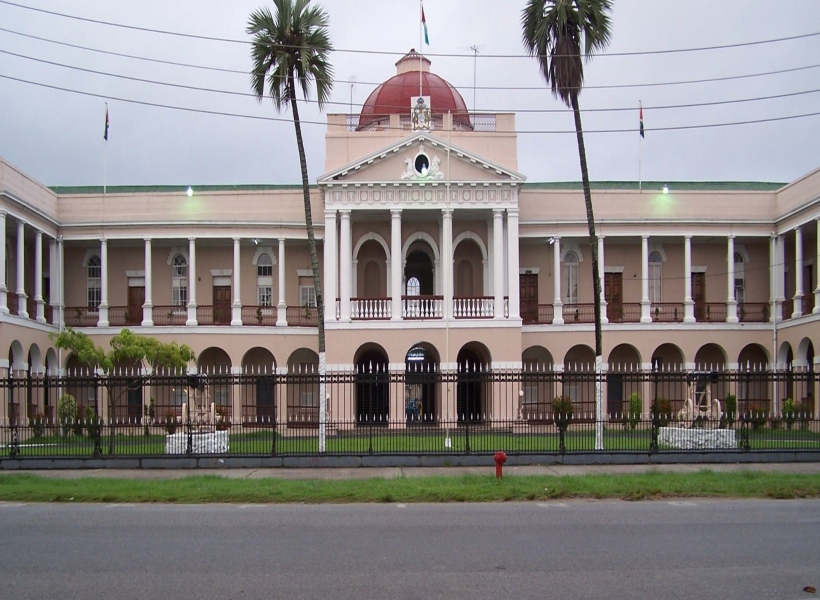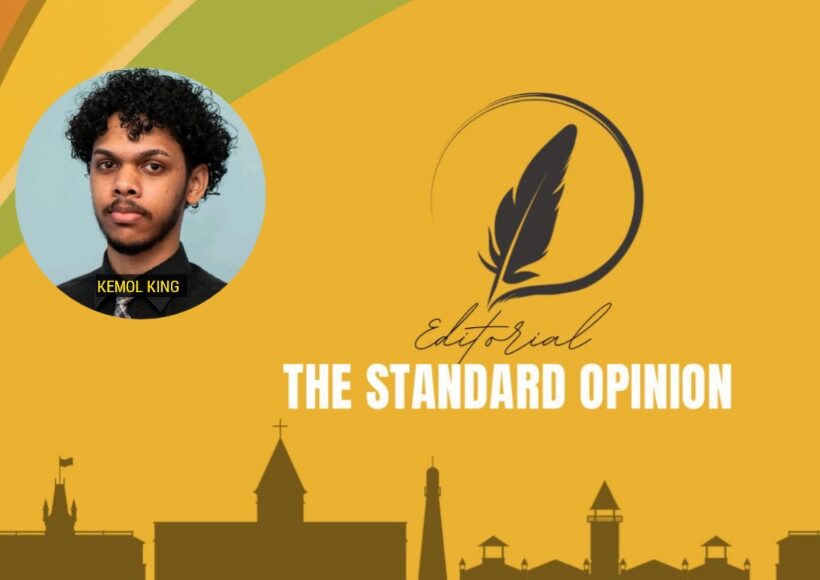By Kemol King
The traditional opposition has been sinking since it resumed that position in 2020, but the 2025 General and Regional elections brought the decline into even sharper view. Aside from We Invest in Nationhood (WIN), the four challengers of the People’s Progressive Party/ Civic (PPP/C) hemorrhaged more than 60% of the votes they had secured just five years earlier, when they were a unified movement, losing even in traditional strongholds like Regions 4 and 10. What followed were resignations, criticism, and finger-pointing that have left A Partnership for National Unity (APNU) — and Aubrey Norton himself — in crisis.
In the period leading up to the vote, APNU was hit hard by high-profile resignations. Former General Secretary Geeta Chandan-Edmond walked away from the PNCR, citing a preference for the PPP/C, campaigning for and openly endorsing President Irfaan Ali.
Jermaine Figueira, a Region 10 stalwart, also broke ranks before the election. Like Chandan-Edmond, he defected to the PPP, campaigned with its machinery, and publicly endorsed President Ali in the run-up to the vote. His decision was seen by many in APNU as one of the sharpest betrayals, given his standing in Linden.
Amanza Walton-Desir, once seen as one of the PNCR’s rising stars, also left. Rather than join the PPP/C, she struck out on her own, founding the Forward Guyana Movement. In the 2025 elections, her new party secured enough votes to win one parliamentary seat, which she is expected to assume. The result positions Walton-Desir with visibility and more independence in Parliament than she could have exercised under Norton’s leadership.
Tabitha Sarabo-Halley and Jaipaul Sharma, who both led parties in the APNU, left for separate paths. Sarabo-Halley, along with Natasha Singh and Dawn Hastings, went over to WIN and will return to Parliament under the banner of a new ship. Sharma left APNU, a still somewhat buoyant vessel, to the AFC, a ship that sank.
These departures deprived the APNU of experienced voices and painted a picture of disunity. To loyalists, they looked like disloyal opportunists. To critics, they were manifestations of Norton’s inability to hold his team together.
Despite the cracks, Norton tried to project strength by creating a new grand coalition. After the APNU and the AFC were unable to come to terms, Norton poached AFC members like Juretha Fernandes, Sherod Duncan, and Deonarine Ramsaroop. The move was meant to revive the APNU+AFC’s heyday.
Instead, there was a historic defeat. The WIN party led by Azruddin Mohammed, captured 25% of the national vote, and is now set to take over as the main opposition. WIN cut deeply into APNU’s base, seizing ground in areas like Linden, Agricola, Mocha, Sophia and Plaisance. These were the communities that had once formed APNU’s core.
In response, Norton argued that it is not unusual for parties to come in and win seats from the traditional opposition, pointing to past elections. He also raised questions about election credibility. Yet, these claims rang hollow against the numbers. APNU had not simply lost marginal seats. It had lost 60% of its 2020 vote, as its base shifted decisively elsewhere. The explanations, however plausible in isolation, were inadequate for the sheer depth of the collapse.
Norton also made a desperate call for the Guyana Elections Commission (GECOM) to annul the results or authorize a forensic audit. The GECOM chair swiftly refused, stating that only the High Court has the jurisdiction to probe election credibility.
As the magnitude of defeat sank in, Norton continues to try to rally the party. He declared it is time to rebuild and that APNU will come back stronger. He claimed most of the people who had been part of the problem had already left the party, and that it was now time to consolidate a united force.
But as he announced his picks for the new Parliament, resignations and criticisms continued to flow. Those who left after the elections are harder to dismiss as opportunists. Elson Lowe, his own former economic advisor, who stood beside Norton during the campaign season, publicly criticized his leadership. The public blow from someone Norton had so heavily relied on as Opposition Leader cut more deeply, showing just how fractured the party has become.
The narrative surrounding Norton’s leadership is grim. His defense, blaming the credibility and fairness of the elections, among other things, while not entirely unfounded, makes him appear out of touch against the backdrop of the continuous breakdown of the APNU.
Norton himself hints at the coalition’s fragility when, in press conferences, he slips and calls the party “PNC” before hurriedly correcting himself to “APNU.” It is a telling habit, one that reflects how little of the coalition’s original breadth remains. Norton had even said before the elections that the PNC was strong enough to contest the elections alone and insinuated that that was under consideration. One wonders what the electoral results would have been if that had actually happened.
Today, the only constituent APNU members with any visibility are the PNC and the Working People’s Alliance (WPA), which rejoined for the purpose of contesting the election. It left in 2020 because of the larger party’s failure to adequately consult its smaller constituents. At least two other member parties abandoned the fold before the vote, throwing in their lot elsewhere. So the question lingers: what is left of APNU beyond the PNC’s shell?
The crisis of the APNU and its leadership now converges on two perspectives:
Perspective one: Norton has been betrayed. Loyalists argue that defections to the PPP or to splinter groups reflect a failing within the party. From this view, opportunists abandoned ship, sabotaging Norton and crippling the coalition. The crisis, in this telling, is not about Norton’s weakness but about members’ lack of loyalty and principle.
Perspective two: Betrayal is the wrong lens. The defections and criticisms are not treachery but proof that Norton is unfit to lead. His leadership has failed to inspire, failed to keep strongholds, and failed to adapt. His explanations for the loss, however defensible in part, cannot justify the party’s collapse. This perspective suggests APNU cannot recover until Norton steps aside.
An effective opposition is vital for a functioning democracy and holding the government accountable. That is why the collapse of the traditional opposition is so unfortunate. WIN’s rise could not have happened without APNU losing the confidence of its base. Now, it falls to WIN to pick up the slack. Whether it proves itself a good opposition is anyone’s guess.









